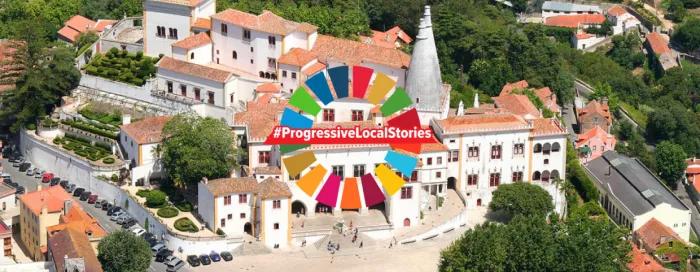Mr. Mayor, why is Sintra a progressive city?
Together with Ireland, Luxembourg and Malta, Portugal is one of the few countries that has no significant presence of far-right forces within its political organisation. The country was severely hit by the crisis but it has now managed to save its economy and to position itself as a leader in the promotion of social policies.
Sintra is the second most populated municipality in Portugal. It also has one of the most diverse and young community. For us, being progressive stands for continuously answering our peoples’ needs. For this reason, our number one strategic objective is to give priority to social and health policies. We aim at keeping unemployment rates low, investing in education at all levels and providing quality health services.
We also work in order to attract investments in our municipality. We believe that good investments (i.e. which are sustainable, promote technology and, most importantly, which create jobs) must be encouraged. We can increase local employment opportunities (one of our social concerns) by keeping a close relationship with the enterprises established in our municipality.
What concrete actions did you put into place in Sintra to implement the Sustainable Development Goals (SDGs) ?
In 2018, our "Local Sustainability Index” report concluded that Sintra has already achieved 74% of its goal towards a sustainable development. Sintra’s highest scores were in SDG 7: "affordable and clean energy”, SDG 9: "industry, innovation and infrastructure” and SDG 13: "climate action”.
Sintra has developed its own Action Plan for Energy Sustainability, whose actions enabled a 30% reduction of CO2 emissions. We have also improved the energy efficiency of our school buildings and created digital platforms such as "Sintra Resolve”, which allows our citizens to report problems encountered in public spaces like mobility difficulties or the need for urban cleaning.
How did Europe (and European funding) help make Sintra more sustainable?
Sintra has received an important amount of EU funds. This has allowed our municipality to increase its investment in sustainable mobility, energy efficiency and in waste reduction and management.
A concrete example of our work is the recent inauguration of the first section of our "Green and Blue Route” that will include 12km of cycle paths, the rehabilitation of 50 hectares of green areas as well as the creation of new ones.
In addition to this, because Sintra has an increasing diversified population, the Asylum, Migration and Integration Fund (AMIF) has been of particular importance. It has allowed us to respond to newcomers’ needs and to promote their quick integration in our community, namely through the development of our "Migrant reception and integration Municipal Plan”.
Basílio Horta is the mayor of Sintra since 2013 and a member of the PES Group in the European Committee of the Regions since 2014. He belongs to the Portuguese Socialist Party.
Photo credit: flickr / José Carlos Cortizo Pérez
